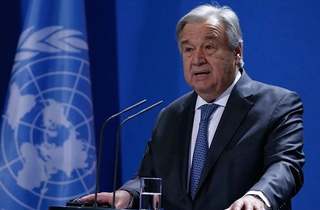The diplomatic initiative was led by Chile’s mission to the United Nations and initially supported by nations including Brazil, Colombia, South Africa, Uganda, Indonesia, Spain, Guyana, and Mexico. Chile’s Foreign Ministry described the collective backing as a significant show of support for Guterres and the UN's mission.
The letter, endorsed by over 100 countries, condemns the Israeli government's move to label Guterres as unwelcome, asserting that it undermines the UN's mandate. This mandate includes mediating international conflicts and providing humanitarian aid, particularly in conflict-ridden regions like the Middle East.
Chile’s Foreign Ministry emphasized that the widespread support for the letter demonstrates the international community’s confidence in Guterres’ leadership. Additionally, it highlights Chile’s growing influence within multilateral organizations.
The Israeli Foreign Ministry’s declaration came after Guterres was criticized for not strongly condemning Iran's retaliatory missile strike on Israel, referred to as Operation True Promise II, which took place on October 1. The operation was in response to the Israeli assassination of Hamas leader Ismail Haniyeh, Hezbollah Secretary-General Hassan Nasrallah, and IRGC General Abbas Nilforoushan.
Israeli Foreign Minister Israel Katz accused Guterres of being "anti-Israel" and accused him of providing indirect support to "terrorists, rapists, and murderers" for his lack of a firm denunciation. Katz stated, “Anyone who cannot unequivocally condemn Iran's heinous attack on Israel does not deserve to step foot on Israeli soil."
Despite the Israeli criticism, during an emergency UN Security Council meeting held on the day of the attack, Guterres did condemn the missile strikes. "I again strongly condemn yesterday's massive missile attacks by Iran on Israel," he stated, though the declaration did not alleviate Israel's dissatisfaction.
The letter signed by 105 nations expressed concern that Israel’s stance against the Secretary-General could further hinder efforts to mediate a peaceful solution in the ongoing Israel-Palestine conflict, including the potential for advancing a two-state solution. It urged respect for the UN’s leadership, particularly during a time of escalating violence in the Middle East.
The document concluded by emphasizing the importance of constructive cooperation with the UN to address current global challenges and promote peace in the region. Guterres' role in fostering dialogue and promoting understanding among conflicting parties was underscored as crucial for long-term stability and friendly relations between states. (ILKHA)



 Dünya
Dünya
 Dünya
Dünya
 Ekonomi
Ekonomi
 Dünya
Dünya
 Dünya
Dünya
 Güncel
Güncel
 Güncel
Güncel
 Güncel
Güncel
 Güncel
Güncel
 Dünya
Dünya





